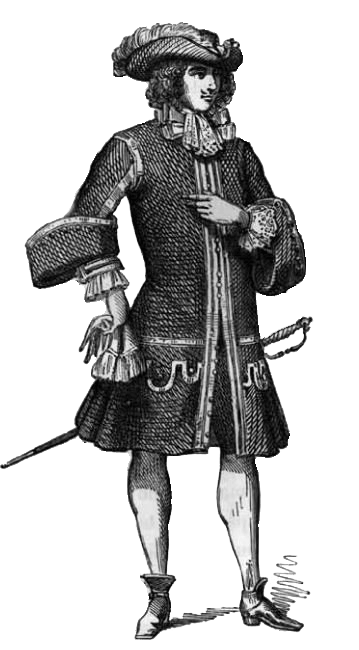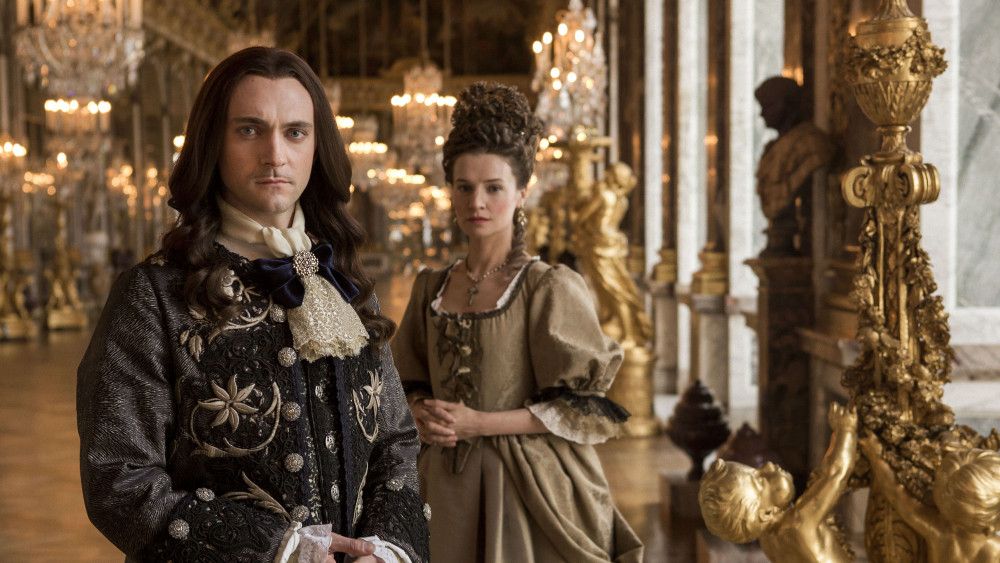Thoughts on Versailles, Episode Two
THE FOLLOWING CONTAINS MAJOR SPOILERS, SO PLEASE REFRAIN FROM READING IF YOU HAVE NOT SEEN THE EPISODE YET. IT IS LESS OF A REVIEW AND MORE OF STATEMENT OF WHAT I THINK OF THE EPISODE ALONG WITH SOME HISTORICAL FACTS AND WHATEVER CAUGHT MY ATTENTION AS YOU CAN READ HERE.

Episode two…… I was honestly surprised.
As we saw at the end of Episode one, Marie-Thérèse gave birth to a daughter. A black daughter.
This event refers to one said to have taken place in 1664, on November 16 to be precise, as Marie-Thérèse gave birth to a daughter at the Louvre. Long story short, the Queen was taken to confinement to prepare for the birth of what was hoped to be a spare heir, but gave birth to a daughter one month before the expected time. They could calculate that quite precisely, because everything the King did was written down somewhere by someone, even when he slept with his wife. Marie-Thérèse herself had the habit to clap her hands in the morning when she was woken, indicating she got lucky during the night.
The daughter she gave birth to was named Marie-Anne and as with all children of France, her birth was a public spectacle and the room was filled with onlookers watching more or less closely what was going on. This was done to ensure the legitimacy of the child that was born, in order to prevent anyone from saying the contrary. For example, the Queen was never pregnant and never gave birth to a child and the one present to them, was just some child claimed to have been born by her, or actually a daughter was born instead a boy and the children have been switched. That can be quite the problem if you are King.
In case of Marie-Anne her birth was well observed and nobody could doubt she was a child of France, and here is where things get interesting…. Marie-Anne was said to have been born sickly, deformened, and of an odd colour of skin. She died a month later, or if you believe the gossip of the time, she did not die and was instead brought away to a cloister, which is exactly what we see in Episode two. Now, no-one can quite say if that story is actually true or not, and so I shall treat it as gossip of time. That gossip also included the fact that the father of the child was the Queen’s African dwarf Nabo. If you fancy to read more about the whole story and what apparently happened to Marie-Anne, you can have a look here.
I was quite impressed they included it, because it is a thing which is not too well-known these days.
Let’s move on to something else that caught my attention; no, it is not how very fabulous everyone looks…. they so do…. but I try not to go on about it.
It is how Masson explains why the child is of a black colour and this is actually what people believed possible in the 17th Century. Masson tells us how the Queen was frolicking about with Nabo and he gave her a mighty fright, thus the child in her womb turned black. For us that sounds ridiculous, but back then explanations like this were actually, to an extent, believed and even logically. People actually believed that a pregnant woman can be influenced by what she sees, hears, eats, and it can affect the child she carries immensely. There is a tale of a woman giving birth to a little boy with a nose similar to that of a pig. This woman was the wife of a pig farmer and the condition of the child was blamed on the mother helping with the pigs and looking too long at them. There were also cases where the birth of a red-haired child to black-haired parents was blamed on the mother eating too many carrots…. perhaps to distract from the red-haired neighbour next door.
Enough talk of babies, let’s talk war.
Now, I am not entirely sure to which war they refer, due to the fact that a little bit of this and that was taken and put into the year 1667. As I later noticed, the events that inspired the story for the show are dating from the late 1650’s to the early 1670’s, so it could be either what we call the War of Devolution, fought in 1667 and 1668, or the Dutch War, lasting from 1672 to 1678, or even a combination of both.
The War of Devolution was basically about Louis wanting to claim the Spanish Netherlands after the death of Philip IV, the father of his wife. He did it with the argument that as he and Marie-Thérèse wed, she in fact renounced any claims to Spanish property, but due to her dowry of 500,000 gold écus, which was meant to be paid as sort of compensation, never fully being paid, it makes the fact that she renounced her claims invalid. Smart boy. So, Louis invaded the Spanish Netherlands and called it a “mere voyage” and it basically was that, for him at least.
All the talk of William of Orange, actually William III of Orange and later William III of England, but just like the French called the rulers of Spain “of Austria” because they were Habsburgs, they called William of Orange simply that and did not distinguish if it was William II or William III or William 99…. what was I on about? Yes, the fact they the mention him and his rise during the whole show made me think it is a sort of combination of both wars. We will come back to that in Episode 3 and 4….
Let’s move to Monsieur…. I shall spare you the talk of my delight during that bedroom scene and the one in the corridor…. Go, Monsieur.
We see him talk strategies, with Royal approval, and get rebuffed. While Alex as Monsieur has quite the knowledge of such matters, the actual Monsieur didn’t. It was never, as many things, part of what he was taught. The reason for it once again the Fronde. Anne and Cardinal Mazarin wanted to ensure that the King’s brother lacks any knowledge of such things in order to prevent him from using it against the King, like Gaston d’Orleans had done with his brother Louis XIII and later Anne and Mazarin. I find the fact that they made him more aware of these things in the show, which story I appreciate as it is, quite a pleasant twist and it adds a little more tension to their relationship. Poor Monsieur.
The next scene starring him might refer to some degree to a tale his cousin La Grande Mademoiselle mentioned in her memoirs.
She writes of a masked ball in which Monsieur made his entrance at the side of the Chevalier de Lorraine…. in a gown. He didn’t beat someone up there, however. This scene is a good example of how quickly he could go from being merry to having a bit of tantrum and as he says, if you insult the brother of the King, you insult the King himself. It is also a good example for his relationship to the Chevalier. The latter tells him to stop him and he does exactly that.
While that happens Minette gets lucky…. and oh, how much do I loathe her for that “he wouldn’t mind to have a glorious death”? Very much.
Back to Louis and Monsieur. We see them talk, or rather Monsieur does, how Louis pretty much has the full control over Monsieur’s life and how he was taught all his life to be less than him. Sad, but true. Now, while being dressed like a girl was normal for young boys until a certain age, Monsieur was encouraged to do it for quite a while longer by his mother and Cardinal Mazarin, he later grew quite fond of it and developed quite the taste for fashion, fabrics and precious jewelry. His mother actually called him her daughter at times. If you look at the early childhood paintings of Louis and Monsieur, you can see that they are both dressed like girls, and were dressed like that until they were given from the care of the Ladies, meaning nurses, into that of the Gentlemen, meaning tutors.
“I am the state”. This is something attributed to Louis, yet although pretty much anything of importance he said or did was written down, there is no hint this line left his lips in any papers until way after his reign. So, we should see it less of something he said, as in a quote, and more as something he was perceived to be, which he surely would find utmost flattering and bring to the point what he tried to achieve. He was quite the sucker for flattery.
The scene in which we hear that mentioned line is pure awesomeness. We see a merry gathering, we see Louis making gifts in order to impress with his graciousness, we see Louis repeating what he had learned from his gardener in order to impress and we see what court life can be for the less fortunate. What we see is something Louis became a master in and that bound his court to him. Do what I want and please me and I shall reward you, oppose me and I shall destroy you. In this case Moncourt in the victim. He thinks himself safe and within minutes he loses everything. Strike when they expect it the least, something he was a master at too.
We close the Episode with a reference of etiquette and the great honor Louis bestows on Bontemps by letting him sit on a chair in his presence. As Bontemps says, only a King may sit in presence of the King on a chair with arms. More about that in one of the following posts and next Episode.
Merci beaucoup.

